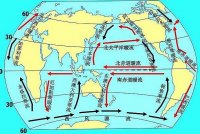1. 保護海洋英語短文
Sea pollution is becoming an increasing problem for our planet and we have a responsibility to reduce sea pollution.
I need to describe the problem. Our ship currently dumps all its rubbish into the sea.It's easy to result in huge endanger. First of all, Non-organic substances such as plastic bags kill fish and whales. Because fish get trapped and whales cannot digest them. Secondly some rubbish is inherently toxic.
I can suggest some solutions. First and foremost we can create a better system of disposing of rubbish for instance. We ought to store rubbish. Next, we are supposed to make ships environmentally and friendly. A case in point is that we should stop providing plastic bags.
We must act now before it is too late
2. 關于保護海洋的英語
海洋是生命的搖籃 Ocean is the craddle of life. 為了地球上的生命-拯救我們的海洋 Save our ocean for the sake of life on the earth
3. 保護海洋的英語短文
Today,I saw a shop was selling the coral when I walk on the street.I was very angry.Perhaps many people still don't know that selling coral is illegal abroad expect in Indonesia.Because Indonesia is so poor that it has to earn money through digging and selling the coral,which accuse many marine organisms have to move from their home-ocean.As you known,if coral leave the ocean which they adapt,they might die.That's why I feel so angry.
Please try our best to protect the marine organisms.They are also our friends!
4. 保護海洋英語翻譯
保護海洋屬于海洋環(huán)境科學,。
海洋環(huán)境科學是研究人類活動引起海洋環(huán)境的變化及造成的影響和保護海洋環(huán)境的學科保護,,海洋環(huán)境是人類持續(xù)開發(fā)利用海洋資源的前提和保證,是海洋科學技術領域的重大研究課題,,他是綜合應用海洋科學各分支學科知識,,結合社會法律經濟因素實施保護海洋環(huán)境極其自然的一門綜合性新興學科。
5. 保護海洋英語短文翻譯
我們一定要保護海洋愛惜海洋資源,。
是搭配不當,,維護跟海洋不搭配。
6. 保護海洋英語短文閱讀
Sea pollution
Between 75 and 80% of marine pollution is caused by land, particularly agriculture. 30% of this is from the atmosphere. Around 12% of the pollution is caused by maritime transport.
In South America, 98% of domestic wastewater ends up, untreated, in the sea. The countries along the Mediterranean Sea throw 50 million tons of waste into it every year and the Chinese throw 60 million tons of waste into the Yellow sea daily. Over half of the hydrocarbon discharge comes from continents, 5% comes from oil tanker accidents, 20% comes from waste and other ship-related accidents, 4% from sea exploitation and 11 to 15% is due to natural causes. Accidental pollution through hydrocarbon is significantly decreasing and only represents a small percentage of waste through degassing estimated at between 1.5 and 3 million tons of oil a year. In 2003, according to the WWF, between 0.7 and 1.3 million tons of oil were spread by degassing in the Mediterranean. According to the Ifremer (the French Institute for Exploitation of the Sea), coastal water pollution cost the world economy almost 12.8 billion dollars in 2006.
Marine pollution is the result of products being thrown into seas and oceans, mostly by mnkind: domestic waste (sewage and rubbish, pollutants in runoff water...), industrial waste (hydrocarbons, metals, synthetic chemical and organic substances, radionuclides...) and agricultural waste (fertilisers, pesticides...).
This includes water pollution and marine sediments, and more generally all damage to marine ecosystems caused by harmful substances being discharged into the sea, either by their nature or their quantity
